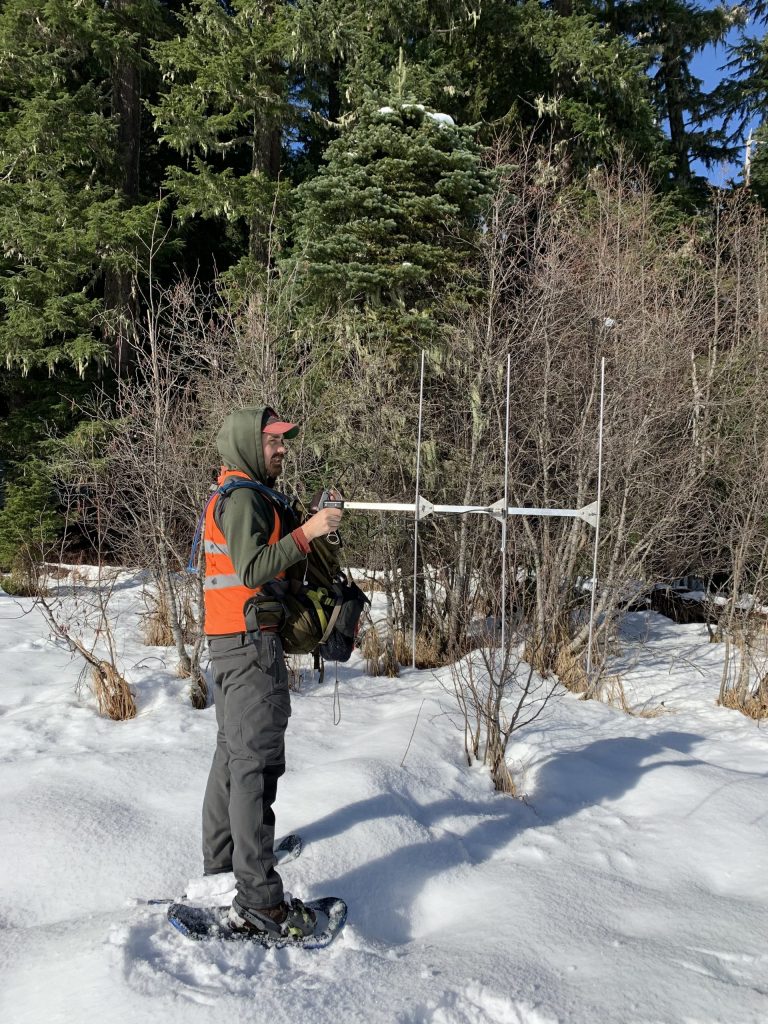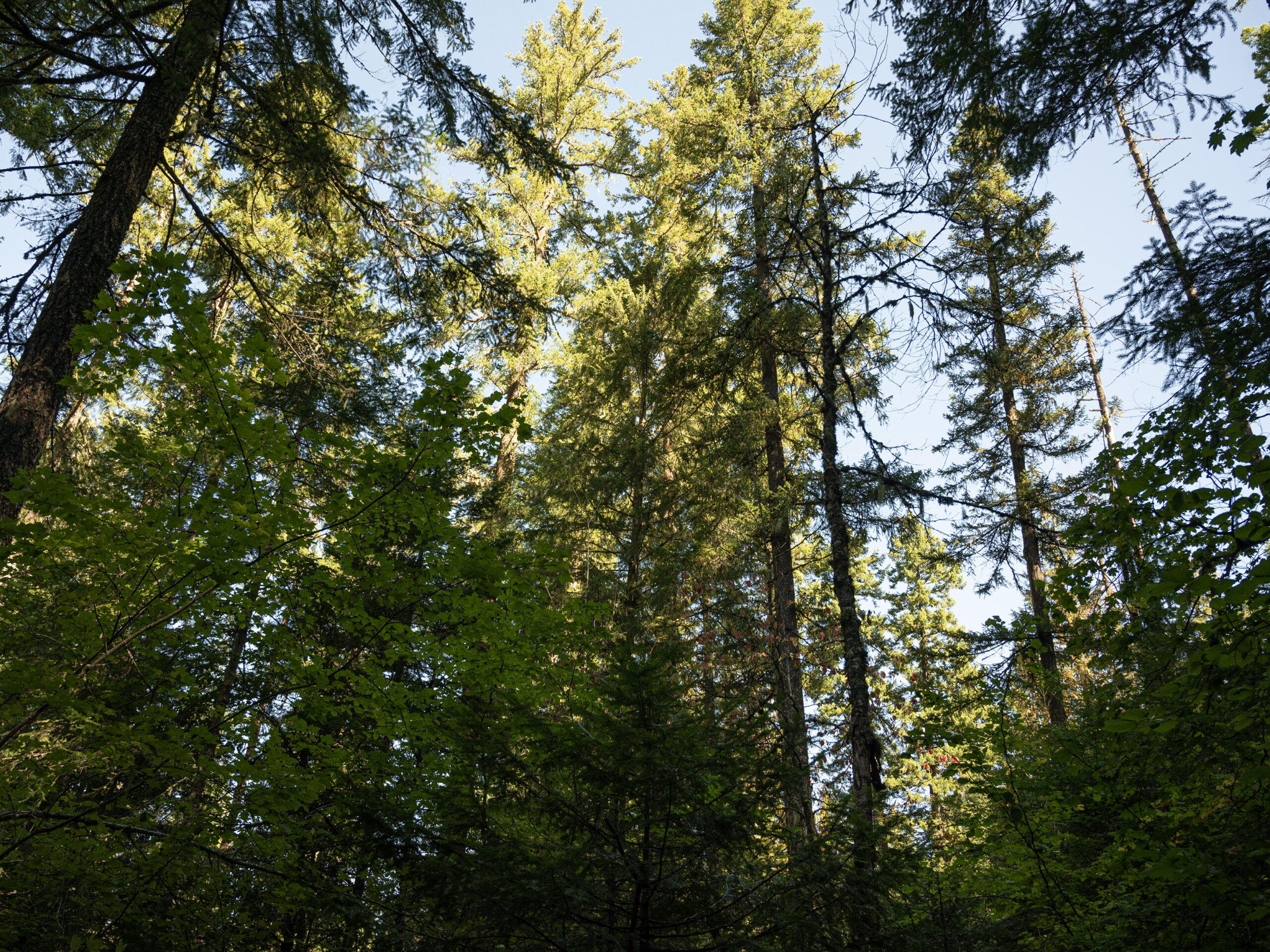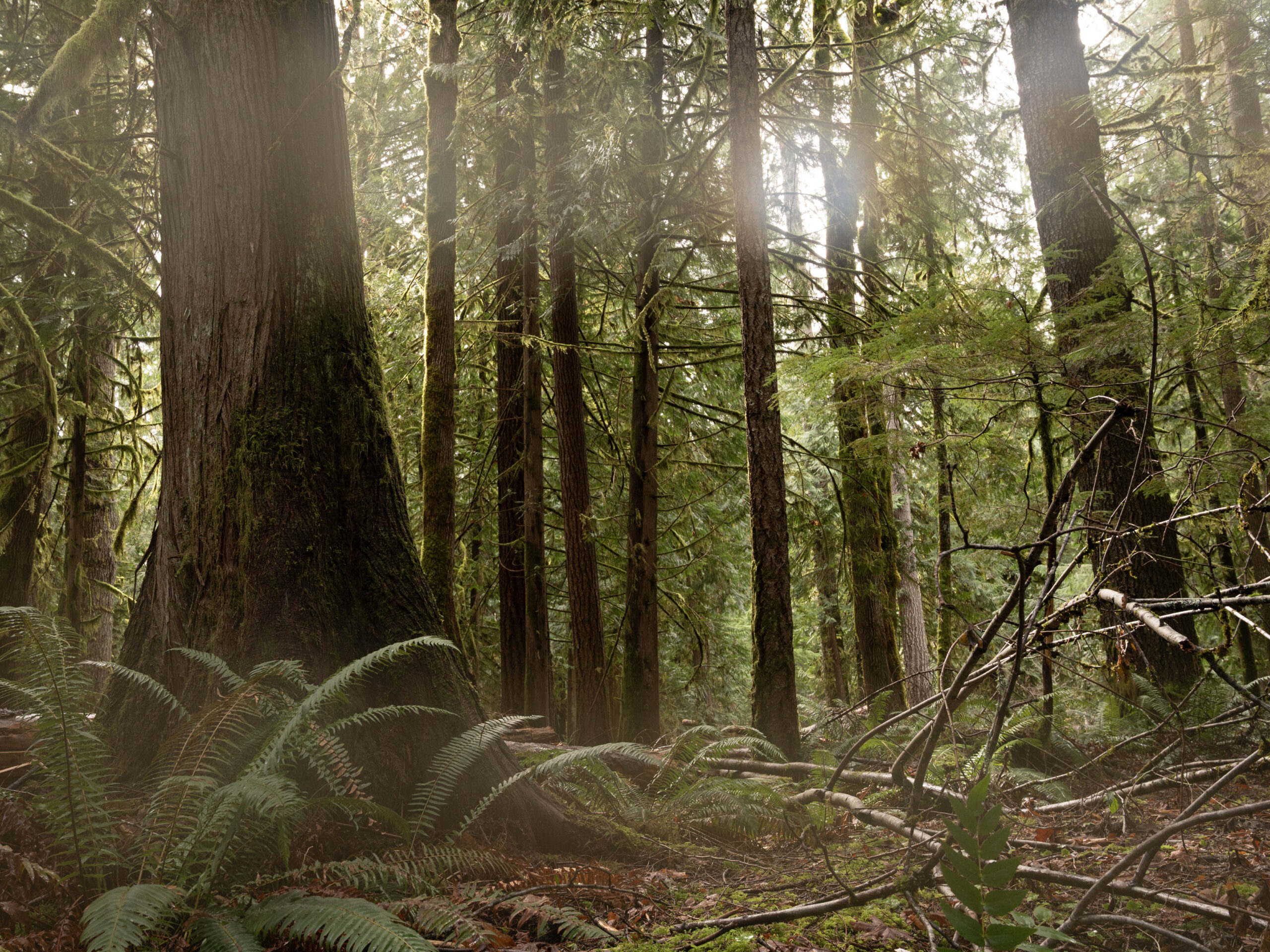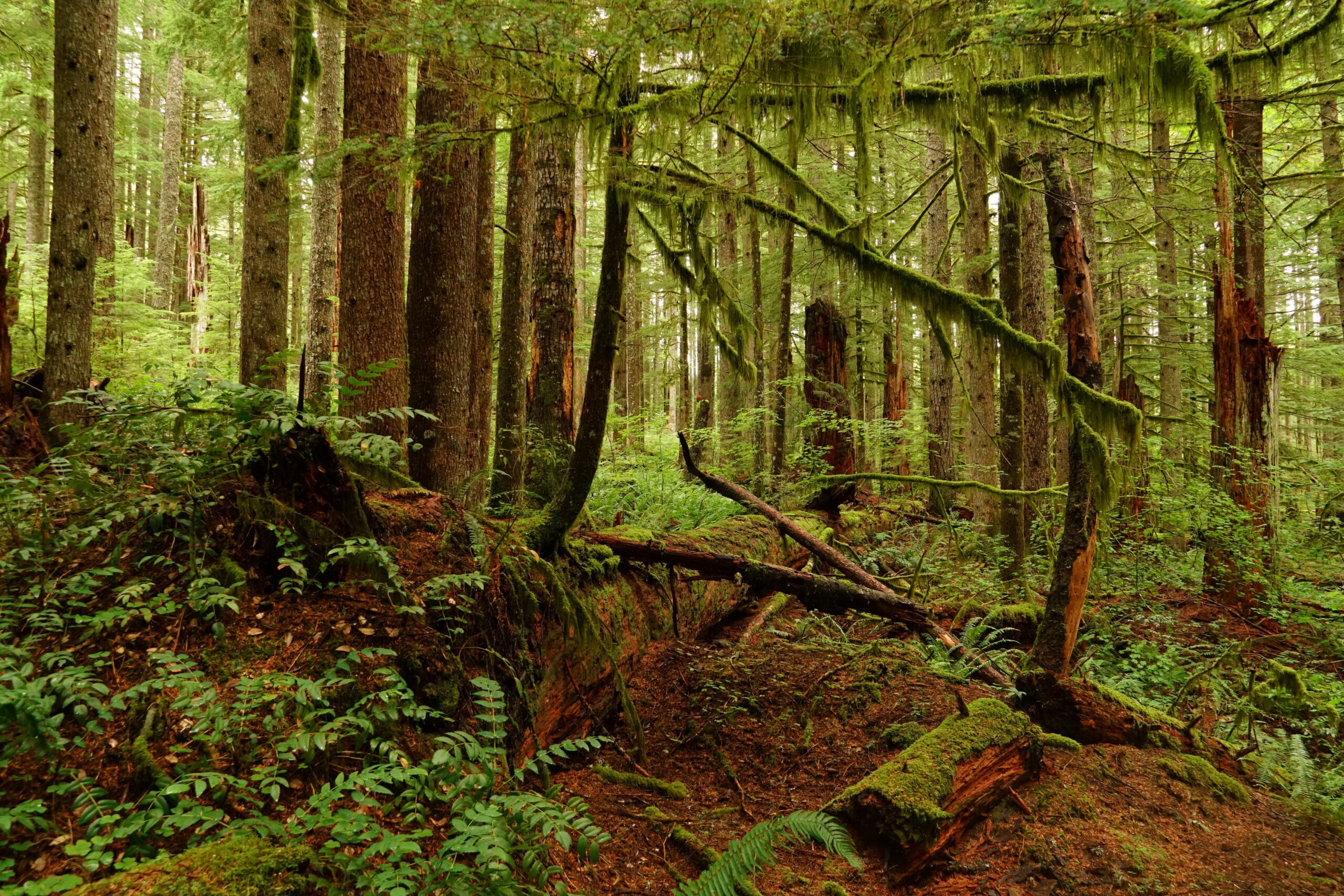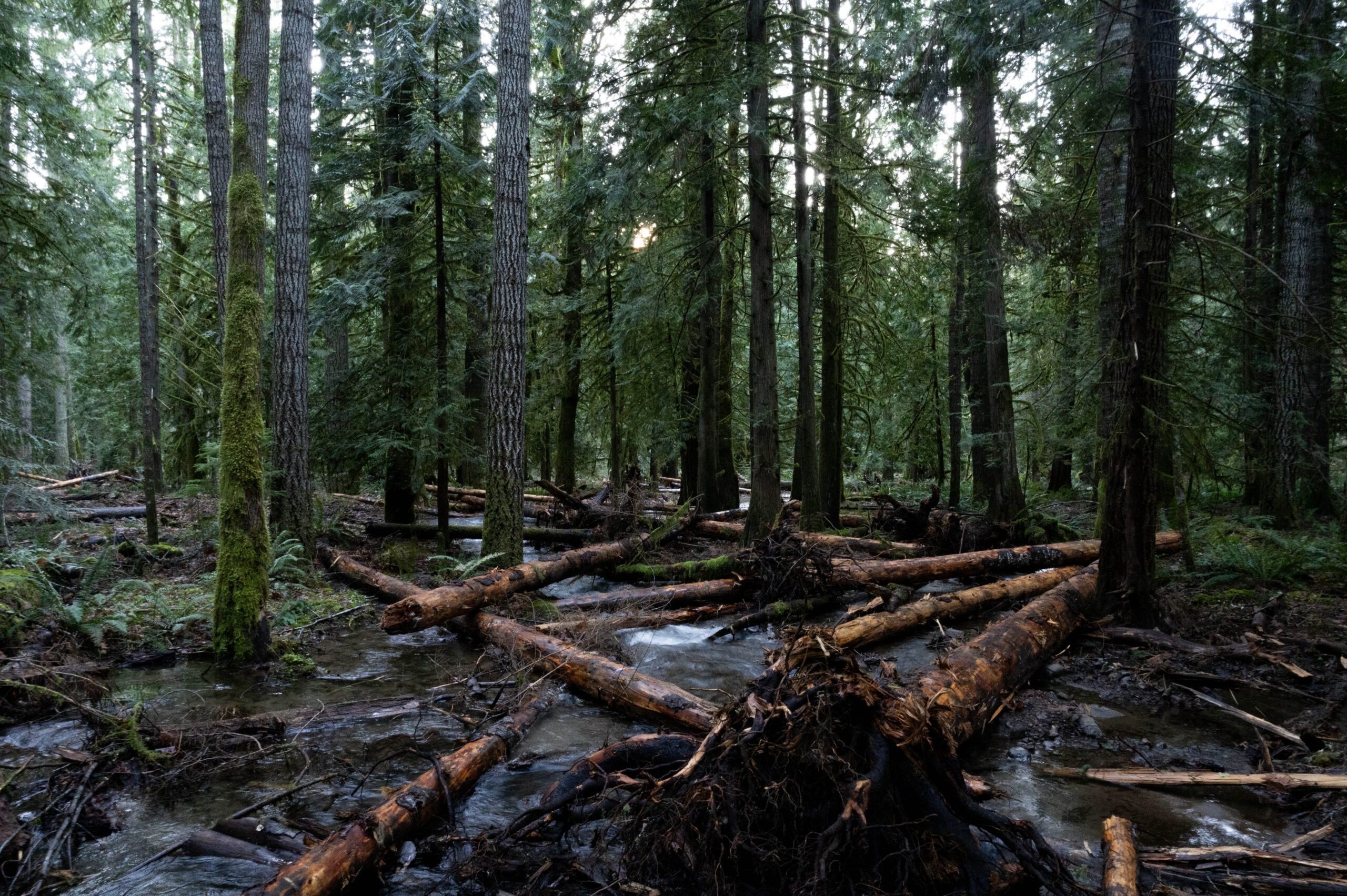December 10 2020

Our Science and Stewardship Manager, Amanda Keasberry, and our partner Jesse Burgher, a grad student at Washington State University-Vancouver, recently set out on a beautiful sunny November day to check in on a pair of beavers released into the forest earlier this fall. Last year, some of our supporters won the privilege of naming some of the beavers released in 2020. This pair were dubbed Cornelia and Gifford.

Although the male has been located several times before, the team wasn’t able to locate him on this trip, but neither are worried. “It’s typical for one beaver to go off exploring while the other waits at home,” explained Keasberry. She added that the deep snow limited their access to the creek so the area they were able to search in was restricted.

Speakers of the Algonkian language, including some of the first tribes encountered by British colonists, call the full moon in November the beaver moon. It is the time when beavers prepare for the winter by storing food and setting up their dens and lodges. By now, Cornelia and Gifford are probably ready for the winter months. Jesse will continue checking in on the beavers every month. Stay tuned for future updates.
New study highlights the importance of beaver reintroduction work in the southern Washington Cascades
A newly published study from our Partners at Washington State University partners confirms the importance of beavers for wildlife and climate resilience. reintroduction work. This research shows that beaver-affected habitats in the southern Washington Cascades increase the presence and diversity of slow-developing amphibian species, such as the vulnerable Oregon spotted frog.
CFC’s beaver reintroduction work is an effective and important component of ecosystem-based restoration work, management, and climate adaptation efforts. As northern temperate wetland ecosystems like those found within the Gifford Pinchot NF, face increased summer drying in the coming years, beaver-affected habitats may become increasingly important climate refugia critical to the survival of a number of species.



